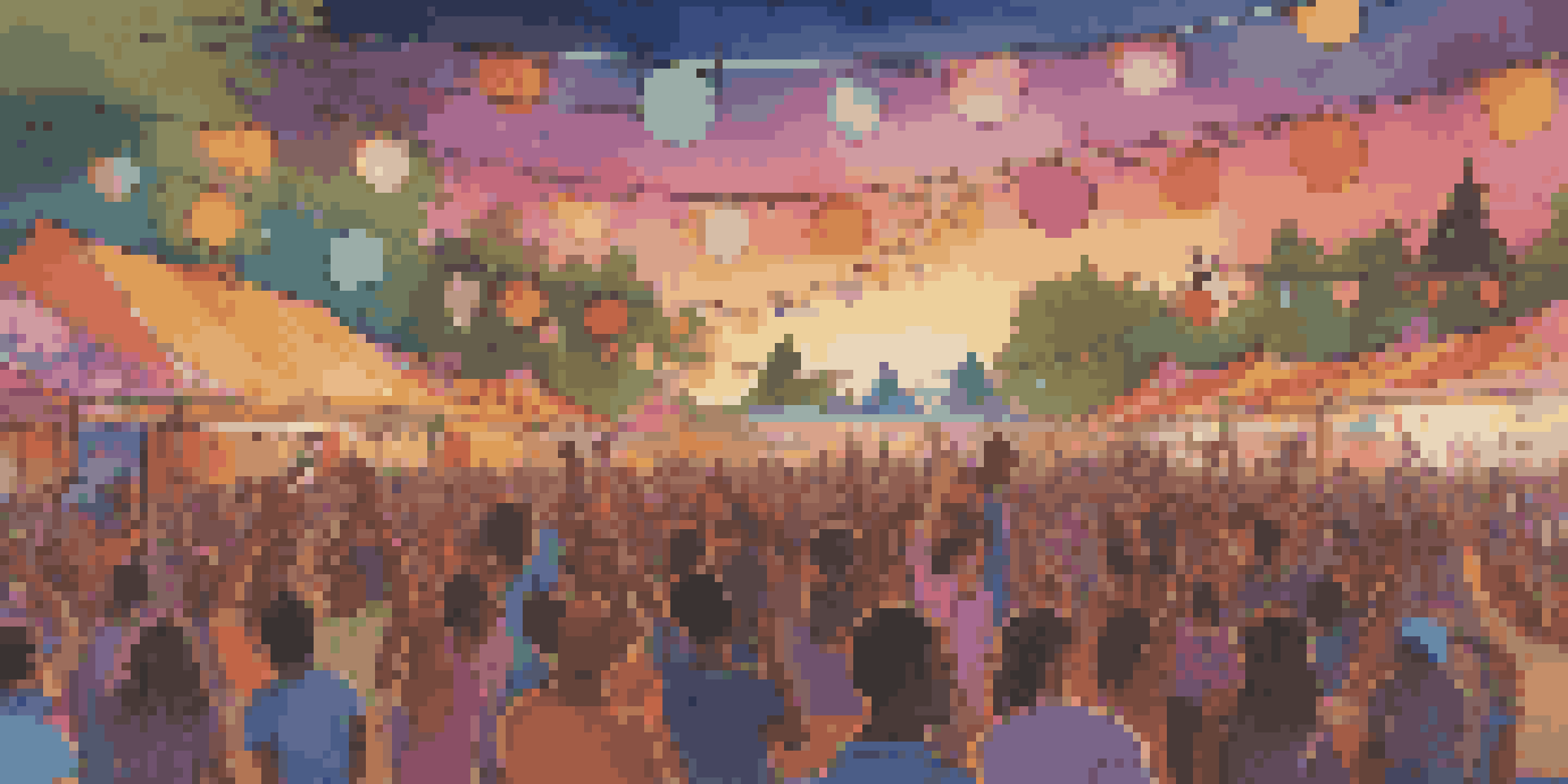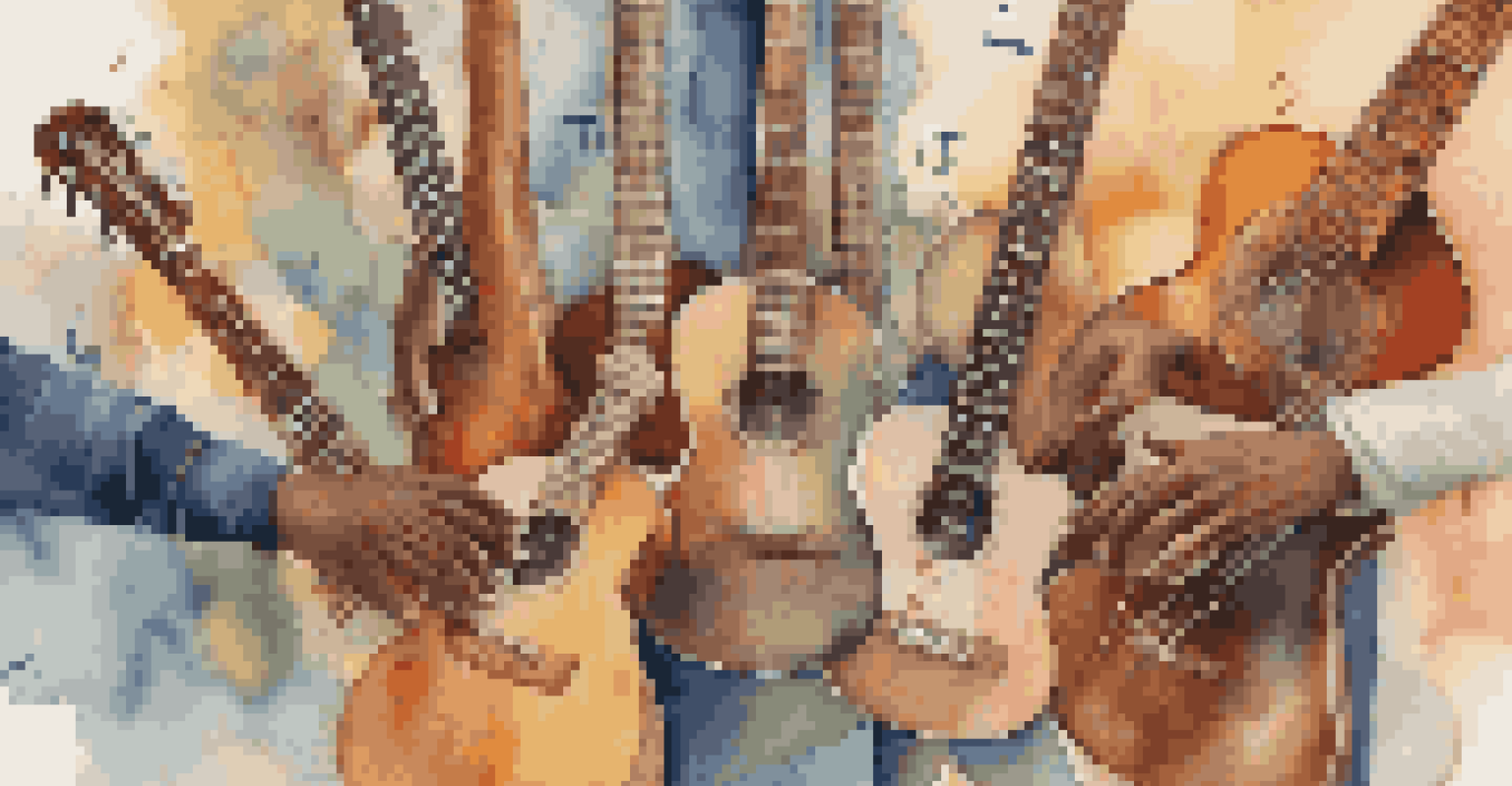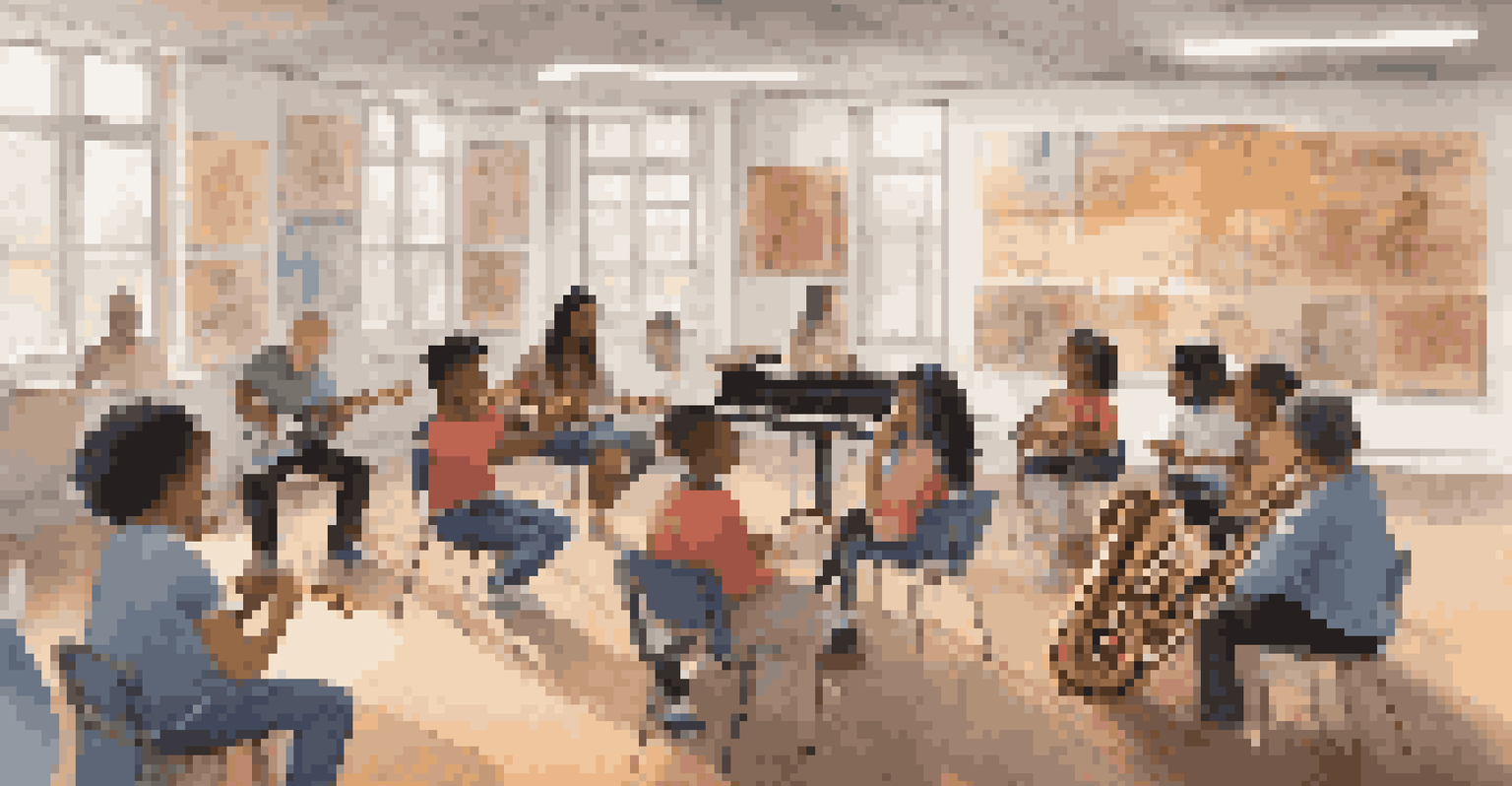The Role of Music in the Fight Against Racism

Music as a Universal Language Against Discrimination
Music transcends barriers, allowing people from different backgrounds to connect. It speaks to our emotions and experiences, uniting us in a shared understanding of humanity. This universal language can amplify messages of equality and justice, making it a powerful tool in the fight against racism.
Music is the universal language of mankind.
When artists create songs that address racial issues, they often spark conversations that might not happen otherwise. For instance, tracks like 'Black Man' by Stevie Wonder or 'Alright' by Kendrick Lamar highlight struggles and triumphs, encouraging listeners to reflect on their own beliefs and biases. This form of expression fosters empathy and understanding among diverse audiences.
Moreover, music festivals and events often promote inclusion and celebrate diversity. These gatherings serve as platforms for marginalized voices, allowing them to share their stories and experiences through performance. By embracing music's unifying power, communities can work together to combat discrimination and promote social justice.
Historical Roots of Music and Social Justice Movements
Throughout history, music has played a significant role in social justice movements. From the civil rights anthems of the 1960s to contemporary protest songs, music has provided a rallying cry for change. Artists like Nina Simone and Bob Dylan used their platforms to address racial inequalities, inspiring generations to take action.

The influence of genres like gospel, blues, and hip-hop cannot be understated in their contributions to civil rights. These musical styles emerged from the struggles of marginalized communities, encapsulating their pain, hope, and determination. Each note and lyric tells a story, creating a rich tapestry that highlights the fight against racism.
Music Unites Against Discrimination
Music serves as a powerful universal language that fosters empathy and understanding in the fight against racism.
Today, the legacy of music in activism continues, with many artists using their voices to advocate for equality. Songs like 'Fight the Power' by Public Enemy resonate with younger audiences, reminding them of the ongoing struggle against racial injustice. This historical context emphasizes how music remains a vital part of the fight for social change.
The Impact of Music Festivals on Racial Equity
Music festivals often serve as microcosms of society, bringing together diverse groups of people to celebrate art and culture. These events can promote racial equity by creating inclusive spaces for all attendees. By prioritizing diverse lineups and representation, festivals can challenge systemic racism and foster unity.
The power of music makes all the difference in the world.
For example, festivals like Coachella and Lollapalooza have made strides in showcasing artists from underrepresented backgrounds. This not only provides a platform for these artists but also encourages attendees to explore different cultures and perspectives. Such experiences can lead to greater awareness and understanding of racial issues.
Additionally, many festivals incorporate workshops and discussions on social justice topics, creating opportunities for dialogue. These conversations can empower participants to take action in their communities, furthering the mission of racial equality. By harnessing the power of music, festivals can become catalysts for change.
Music's Role in Healing and Empowerment
Music has an incredible ability to heal and empower individuals and communities affected by racism. It can provide solace during difficult times and inspire resilience in the face of adversity. For many, music serves as a form of therapy, helping them process their emotions and experiences.
Artists often use their music as a means of empowerment, encouraging listeners to embrace their identity and fight against oppression. For instance, songs like 'Formation' by Beyoncé celebrate Black culture and encourage pride in one's heritage. This sense of empowerment can motivate individuals to stand up against racism and advocate for change.
Festivals Promote Racial Equity
Music festivals create inclusive spaces that challenge systemic racism and encourage dialogue on social justice.
Furthermore, community music programs can play a crucial role in healing. By bringing people together through music, these initiatives foster connections and understanding among diverse groups. This collaborative spirit can help break down racial divides and promote a sense of belonging.
The Global Influence of Music on Racial Awareness
Music's influence extends beyond borders, shaping global conversations about racism and equality. International artists often draw attention to racial issues in their own countries, creating a worldwide dialogue. This interconnectedness amplifies the message that racism is a global issue that requires collective action.
For example, the rise of Afrobeat music has brought African culture and issues to the forefront of the global music scene. Artists like Burna Boy and Wizkid use their platforms to raise awareness about systemic racism and advocate for social justice. Their music resonates with listeners worldwide, demonstrating the power of cross-cultural collaboration.
Additionally, global music movements, such as the #BlackLivesMatter movement, showcase how music can inspire solidarity across nations. By sharing stories and experiences through music, artists can foster a sense of unity among diverse communities, driving home the message that we are stronger together in the fight against racism.
The Role of Music Education in Promoting Inclusivity
Music education plays a crucial role in fostering inclusivity and understanding among students from different backgrounds. By integrating diverse musical traditions into curricula, educators can promote cultural awareness and appreciation. This approach encourages students to embrace their own heritage while also respecting others.
Programs that focus on social justice themes within music education can empower students to express themselves and engage with important issues. For example, teaching songs that address racism and discrimination can spark meaningful discussions in the classroom. These conversations can help students develop empathy and a sense of responsibility toward social change.
Education Fosters Inclusivity
Integrating diverse musical traditions in education empowers students to engage with social justice issues and promotes cultural awareness.
Moreover, community music programs that target underrepresented youth can provide invaluable opportunities for personal and artistic growth. By offering access to music education, these initiatives can help cultivate a new generation of artists and activists committed to fighting against racism. In this way, music education becomes a vital tool for promoting inclusivity and understanding.
The Future of Music and the Fight Against Racism
As we look to the future, the role of music in combating racism will likely continue to evolve. With the rise of technology and social media, artists can now reach broader audiences and spark conversations at an unprecedented scale. This presents exciting opportunities for musicians to engage with fans and advocate for social justice.
Emerging genres and collaborations across cultures will also play a key role in shaping the musical landscape. By blending different styles and influences, artists can create powerful narratives that resonate with diverse audiences. This fusion of music can serve as a unifying force, promoting mutual understanding and respect.

Ultimately, the future of music in the fight against racism depends on our collective commitment to using this powerful medium for good. By supporting artists who advocate for equality and embracing music's unifying potential, we can work together to create a more just and inclusive society.